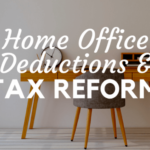Crosstown Commercial / December 12, 2022
At long last – the retail real-estate revival is here
Though there may be some healthy (and not so healthy) debate about whether or not the pandemic is truly behind us, one thing is for sure – people are getting out and about again, and this year’s retail season will be indeed telling.
Brick-and-mortar locations, though they suffered substantially when shoppers had no choice but to turn to online shopping during store closures and the constant COVID fears that lingered, are finally starting to see traffic – in surprising numbers. And finally, we’re seeing more stores begin to open than close. That trend is anticipated to continue, even with fears of a recession top of mind for many.
Renovate vs. build
But this turnaround in the retail real estate industry is simply a reflection of adjustments that retailers needed to make based on changing shopping behaviors, not to mention the pandemic. And developers are looking to renovate and redesign existing, albeit outdated, properties rather than pursuing new builds. This allows a more conservative approach. However, those who embark on new retail construction projects are proceeding with caution. Leases are being signed before the ground is ever broken, ensuring a level of commitment that wasn’t needed pre-pandemic or even a decade ago.
Also interesting is that online-only retailers are finally feeling comfortable enough to expand to brick-and-mortar. Take Warby Parker, Inc. as an example. This fashion eyewear brand was online only from 2010 onwards, but in the last several months, has expanded by opening eight stores in the first quarter of 2022, with plans to open 40 by calendar close.
And shoppers are riding the wave. Though online shopping continues to be on the rise – consider that e-retail sales exceeded 5.2 trillion USD in 2021 and is anticipated to hit 6.5 trillion USD by 2023, many shoppers are flocking back to brick-and-mortar. Shoppers are shouting from the rooftops that they want to shop for clothing, groceries, and everything in between in person and don’t want to be limited by what can be found via online searches that simply point them back to one or more of the online retail giants.
Other retail sectors are in an oversupply
And though retail real estate is finally catching a glimpse of renewed glory, the same isn’t true for other commercial real estate sectors. The office market in particular, continues to struggle as many companies have found a way to incorporate success with a remote workforce, no longer needing the square footage of office space they once did. And despite certain companies shouting for employees to return to the office (aka Twitter), it is anticipated that remote work will continue to be kind for long into the future – employees will demand it.
But retail real estate is thriving, and finally benefitting from the many years of minimalist development before online shopping took off. And it is expected that more and more online-only retailers will follow in the path of Warby Parker. And why not mention square footage and large-format expansions such as those recently announced by retail giant Target Corporation?
Retail may continue to weather the storm
Despite high inflation and rising interest rates, retail real estate could continue to persevere, especially by staying in front of the needs of the ever-changing shopper. The advice is to pay attention to food traffic
and buyer trends to stay ahead of the curve.































